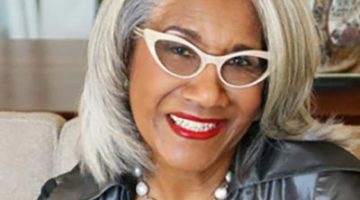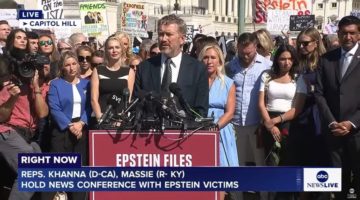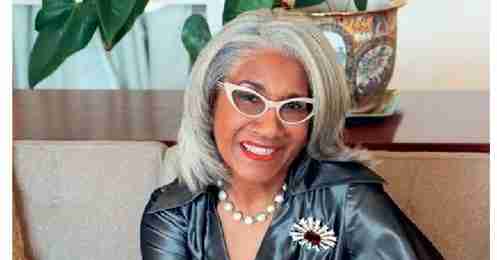In “UNHINGED: An Insider’s Account of the Trump White House,” we read how folk in Omarosa’s wobbly orbit get burned by their proximity to her.
Even casual discussions about Omarosa conjure up a wide range of emotions. I have yet to hear a neutral response to her name, to her credit. She plainly lives by the adage: call me anything, just don’t call me late for dinner.
She has encountered many dozens of people over a nearly twenty year span of her celebrity/notoriety in the overlapping worlds of media (television, magazines, other) and politics, and many of them get some mention in the book.
Omarosa reminds the reader that she was a journalism/communication student at Howard University (with undergraduate and graduate degrees), a former beauty contestant winner, an ordained minister, a candidate for public office (in California), to name a few, but most importantly, she was the first woman of color on the original “The Apprentice,” where she first began to study and emulate Donald J. Trump. That experience put her on a trajectory; her self-propelled destiny, fueled by her professed passion for winning, aligning herself with the ultimate ‘winner.’
In her tell all, she takes everyone to task for not taking all her words as gospel, ignoring her counsel; for her team tackling her; for being disparaged by the African American community for “just doing her job on their behalf” and for generally being disrespected.
The most transparent thread of commentary in her book? Omarosa’s need to be at the center, or as close as possible, to all the action: the good, bad or ugly of what is happening, and given credit forin many instances – for just being there.
In “Unhinged,” she admits to having honed her skills under the tutelage of the master of distraction himself: Donald J. Trump. Notwithstanding the roller coaster highs and lows she experienced with Trump – being hired, fired, rehired, fired, rehired – throughout the book, Omarosa pleas with the reader for understanding.
She repeats a running theme about putting on blinders about Trump. She offers the following: “On hindsight, I see the flaws in my thinking. And it (here you can fill in the multiple blanks about his OMAROSA egregious behavior, language, attitude, etc.) probably should have bothered me more than it did. But as I’ve mentioned, I had a blind spot.”
Omarosa desperately wanted to believe Trump was a good guy. She says he always treated her with respect and affection (reportedly, she also received the same from his family), and that he/they validated her need to be treated well.
In summary of her experience, “That moment (election night) was one of the highlights of my life. I marked it down as proof of how wonderful and great this country had been to me. At that moment, I was living the American dream. I’d had many low points in my life: being on public assistance, going to the mission to get food from the food bank, the murders of my father and brother. And now I was standing on that stage with the president-elect of the United States, soon to be the most powerful man in the country, if not the world…….and now, against all odds, the two of us were on that stage together.”
Tellingly, toward the end of the book, Omarosa drew a parallel between herself and Louise Linton, wife of Steve Mnuchin who was criticized for being tone deaf. In commiseration with Louise, Omarosa told her, “Few people can fully understand how it feels when the whole world seems to be against you.”
What useful content did I find in Unhinged? It was murky and filled with rehashed and previously published information. There was no new news.
My key take-aways are Omarosa’s warnings about the alarmingly fast rate of decline in Trump’s mental acuity. She comments on his decline over their fifteen year working relationship. That is the biggest concern raised in the book.
Not the character assassinations (there are plenty), or the business-as-usual political shenanigans.
Omarosa makes a good case for how the insidious insider dirty tricks (tapes, leaks, firings, backstabbing, etc.), the shadowy figures left over from the ‘swamp,’ and the looming and leering presence of VP Mike Pence, an eerie figure ‘waiting’ in the background after setting up his own PAC for a potential run as president, are less cause for concern than Trump’s diminished capacity.
When she says to be afraid, be very afraid, I believe the woman knows what she’s talking about. But I urge caution. We need to listen with both our eyes and earswide open whenever Omarosa speaks.
Toniwg1@gmail.com










No Comment